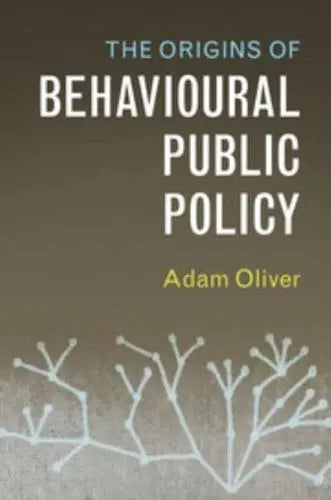The Origins of Behavioural Public Policy
Author(s): Adam Oliver
Couldn't load pickup availability
🚚 Free UK delivery on books (excluding sale). T&Cs apply.
Free click & collect on all orders.
The use of behavioural science to inform policy is one of the main developments in the social sciences over the last several decades. In this book, Adam Oliver offers an accessible introduction to the development of behavioural public policy, examining how behavioural economics might be used to inform the design of a broad spectrum of policy frameworks, from nudges, to bans on certain individual behaviours, to the regulation of the commercial sector. He also considers how behavioural economics can explain and predict phenomena as a challenge to economists' assumptions around how people perceive time, utility and money. The book offers an intellectual foundation for all those concerned with behavioural public policy, from academics, undergraduate and postgraduate students with a diverse range of disciplinary perspectives, such as economics, political science, sociology and anthropology, to policy makers and practitioners working directly with behavioural public policy in their everyday working lives.
- An accessible introduction to the development of behavioural economics from the 1950s to the present day, giving the reader a thorough grounding in its developments and the challenges it poses to rational choice theory and standard economics theory
- Offers an all-encompassing, non-didactic approach to behavioural economics, presenting arguments both for and against propositions, allowing the reader to gain knowledge of the various issues and encouraging them to form their own considered opinions
- Clearly highlights an applied approach to behavioural economics over the rhetoric of other texts to bring a level of intellectual clarity to the field
Share


